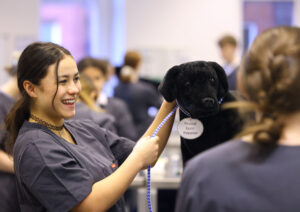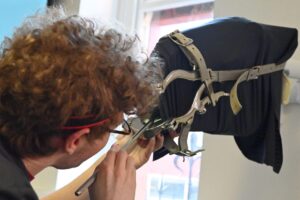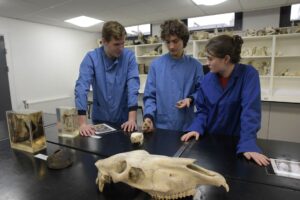How you'll learn
You’ll learn through a balanced mix of lectures, workshops, field work, seminars and tutorials as well as hands-on, practical laboratory sessions, working individually and in small groups.
How you're assessed
Assessed work including essays, presentations, group work, qualitative and experimental reports together with examination results from years one, two, three contributing to your final degree classification.
Liverpool Hallmarks
We have a distinctive approach to education, the Liverpool Curriculum Framework, which focuses on research-connected teaching, active learning, and authentic assessment to ensure our students graduate as digitally fluent and confident global citizens.
The Liverpool Curriculum framework sets out our distinctive approach to education. Our teaching staff support our students to develop academic knowledge, skills, and understanding alongside our graduate attributes:
- Digital fluency
- Confidence
- Global citizenship
Our curriculum is characterised by the three Liverpool Hallmarks:
- Research-connected teaching
- Active learning
- Authentic assessment
All this is underpinned by our core value of inclusivity and commitment to providing a curriculum that is accessible to all students.







